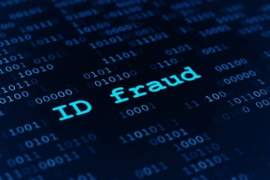
What You Need To Know About Hacking

What is Hacking?
Hacking crime is committed through the usage of computers, the Internet, or virtual networks, which is defined as the unlawful access of – or entry into - the computer terminal, database, or digital record system belonging to another individual; typically, hacking is conducted with the intent to commit a computer-based, electronic criminal act. Unlawfully, illegally, and harmfully collecting or amassing an individual’s private information with regards to the internet, a computer, or alternative electronic network may result the in the illicit possession and misuse of personal data without the consent of the victim.
Hacking into a computer – which can also be defined as virtual trespassing by means of collecting personal data in an intrusive manner – is one of the foremost means facilitated by individuals attempting to commit identity theft.
How is Hacking used for Identity Theft?
‘Hackers’ – the colloquial classification of individuals undertaking exploitative, manipulative, unethical, and illegal behavior or actions with the expressed intention to intrude on computer systems belonging to other individuals – may vary in experience, classification, and tactical maneuvering. While certain individuals undertaking hacking measures in order to commit identity theft may do so in obtrusive and purposeful means, other hackers may act in clandestine, illicit, and secretive manners.
However, the victim of identity theft may be impressionable, impressionable, and oftentimes vulnerable individuals unfamiliar with computational systems. Upon this unlawful access of a computer terminal belonging to the victim, the perpetrator may facilitate methodology that includes the commandeering or illicit removal of personal, private, or financial information.
What is an Online Predator?
Financial Online Predators typically target unsuspecting or impressionable victims commonly unfamiliar with the Internet or computational systems; Financial Online Predators may attempt to extract personal and private information from their victims in order to commit fraud, cause destruction, or facilitate means of extortion.
Upon unlawfully accessing data stored in its electronic form, a victim may be unaware that any or all information has been repossessed – and subsequently misused within an identity fraud operation. Hackers acting as online predators may target a wide range of electronic networks, including commercial and residential computer systems.
How to Prevent Electronic Identity Theft
Due to technological innovation, electronic identity theft is considered by many to be one of the most recently-developed crimes, credited – in part - to the ongoing advent of computer-based technology.
This type of technology relies heavily on the Internet and online activity, and as a result, regulations and oversight of this type of activity has been expressed in the spectrum of preventative measures involving the cessation of electronic identity theft.
Companies providing methods of Identity theft prevention - including Lifelock, which is one of the most widely-acclaimed and recognized – have employed protective measures ranging from securing online perimeters to communicative transmission inquiring about the validity of unsubstantiated activity; these types of companies have found their respective niche within the prevention of identity fraud upon providing protection in lieu of infringing on personal privacy.
NEXT: Phishing




















